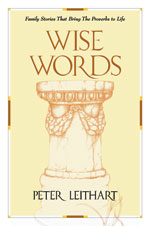
Credit is due where credit belongs. TGTUs are the braintrust of one terrific fella, The Rev. Fr. Eric “Big Dawg” Christiansen, as noted in the lower left-hand corner. He researched and developed these fireproof/bulletproof/asbestos/Kevlar accoutrement for the Confessional Lutheran, then named a select few as distributors. Directly under the title it reads, "Hermeneutically sealed in 1580." Of course, that does not preclude all that preceded, or that which is faithfully confessed since then. The Church speaks with one voice.
A bit of a warning: One pastor hung his undies discreetly behind his office door. He knew they were powerful enough to provide the necessary protection through the strongest steel. But alas!, they were discovered by the head elder, and he was considered to be unfit for pastoral duty. “Not pious enough!” “Lacking in ‘pastorly’ character.”
Just prior to the First Gerry Convention the Grandfather of Comtemporary Worship wrote a book. It was a sort of expose on Confessionals. CAT41 was singled out in particular. TGTUs were targeted, though not by name- only the 'shamefuleness' of pastors talking about their "undies," even some in "hot pink." None were ever made like that, the guys jested a lot. The author, despite our explanations, never grokked the undies were paper certificates.
TGTUs are just too dawg-on irreverent for some folks. Or maybe it’s impolite to think a pastor needs undies at all, let alone the kind that protect his rear from all those ablazing moments that come his way.
Or maybe some folks just don't have a sense of humor.
BTW... I got a sideways personal mention in that book... didja'all catch it? He mentions the "Mother Hen" who puts folks through a welcoming ritual, asking them if they are "Momma's Boys." Would that we all recognize that we are such according to our Baptism and cling to the teats of Mother Church (the Mother who begets and bears all Christians in the world)! Perhaps then TGTUs would become obsolete! Silly thought for the Church Militant.

My TGTUs are signed by Big Dawg himself and hang eye-level in my study near my deaconess certificate and above a piece of my granddaughter's artwork. (She was 14 months when she did it. See her hand and foot?) There were many times going to school I needed them. As a deaconess I am well placed. Ri'chere is a little slice of Neuendettelsau down here in Mi'zzippi- an' we like it that way. That has nothing to do with the temperament of the pastor, but with the fact that this deac is fed six-seven days a week on her pastor's sermons and can find him whenever she needs for Confession and Absolution. Now there's some real TGTUs for ya!
Oddest things in my study?
1. A framed cartoon Uncle Mikesie (Rev. Micheal Strong) sent me. Lady's standing on a bridge, dumping something over. Something
bounces, PING.... PING.... PING...., down the road below. Caption: "As she scattered Leon's ashes off the Oakmont Bridge, Tina realized she had completely forgotten about his glass eye." (Let the reader understand why this is so dear to me.)
2. Two copies of Der Struwwelpeter. One is in German, the other in Hebrew.
3. Two volumes of Luther's House Postils, both published 1884 by JA Schulze. My son gave these to me before his second tour in Iraq.
4. A feminist library.
5. My husband says my icon collection is odd.



